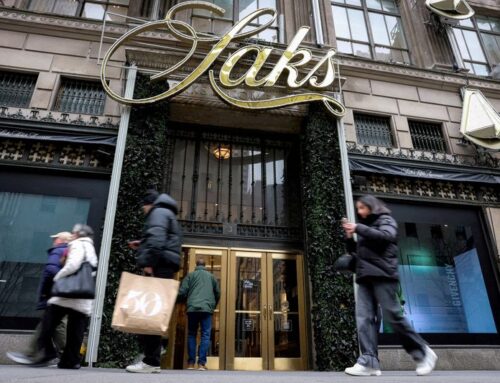Marc Andreessen thinks AI can do every job in the world
May 6, 2025
Marc Andreessen is, arguably, the most famous venture capitalist on earth. Cofounder of the legendary VC firm Andreessen Horowitz, inventor of the first popular web browser, and by reputation such a widely read intellectual egghead that his colleagues call him “MarcGPT.” And as befits his nickname, Andreessen is a big believer in a future powered by artificial intelligence. His firm — “a16z” to Silicon Valley sophisticates — has invested in Elon Musk’s xAI and Sam Altman’s OpenAI. Andreessen has called AI “our alchemy, our Philosopher’s Stone,” and “a universal problem solver” that “ramps up the capabilities of our machines and ourselves.”
But for Andreessen, there is one job that AI will never do as well as a living, breathing human being: his.
Think I’m kidding? On an a16z podcast last week, Andreessen opined that being a venture capitalist may be a profession that is “quite literally timeless.” “When the AIs are doing everything else,” he continued, “that may be one of the last remaining fields that people are still doing.”
Here’s the logic. Andreessen starts by talking about all the things that people thought might disrupt the way VCs operate — like the Craigslist-style approach of AngelList, or crowdfunding. “The other form of structural change, of course, is AI,” Andreessen says. Then he issues a challenge to the AI crowd: “All right, smart guys. You’re sitting around doing all this analysis, and you have all these smart people doing all this modeling and all this research and so forth. Why can’t you just plug this into Claude or ChatGPT or Gemini and have it tell you what to invest in?”
The reason, Andreessen explains, is that it takes a VC like him to know how to pick a winner. He throws out a bunch of examples, going all the way back to the whaling industry 500 years ago: book publishers, movie studio executives, talent scouts at music labels. (I’ll spare you the details here, but I spoke with an economist who has analyzed the whaling industry, and he says MarcGPT is pretty much wrong on every count.) Andreessen insists that these are key jobs that spring up “any time you have a part of the economy in which you have an entrepreneur going on a high-risk, high-return endeavor where it is far from clear what is going to work, and there are many more aspirants than there is money to fund them.”
Here, Andreessen argues, is where the human element is irreplaceable. “You’re not just funding them,” he says. “You have to actually work with them to execute the entire project. That’s art. That’s not science. That’s art. We would like it to be science, but, like, it’s art.”
Now correct me if I’m wrong, but it seems like a lot of AI folks have been trying to tell us that AI can make art. Last year, even Andreessen said that AI had enough of a sense of humor to “save comedy.” But apparently it can’t do his art.
Which brings us to the wildest bit. Andreessen says he knows that venture investing is an ineffable, intuitive, intrinsically human skill precisely because venture capitalists arevery bad at it. “The great VCs have a success rate of getting, I don’t know, two out of 10 of the great companies of the decade, right?” he says. “If it was science, you could eventually have somebody who just dials in and gets eight out of 10. But in the real world, it’s not like that. You’re in the fluke business, and there’s an intangibility to it. There’s a taste aspect.”
Even accepting Andreessen’s premise — that VCs contribute better advice than AI on how to run a business — it looks like he’s wrong about whether he’s replaceable. In a recent survey by the enterprise software company SAP, 75% of C-level executives at billion-dollar companies said AI already gives better business advice than their friends and colleagues. And 38% said they trust AI to make business decisions. The kind of people Andreessen counts on for his livelihood are already starting to think he’s obsolete.
But Andreessen’s portrait of how venture capital works doesn’t actually accord with reality. VC investors say they’re looking for disruptive innovation. In practice, they have operated pretty much like any good-old-boy network, consistently funding way more white men than women or people of color — often the same white men they knew from previous startups, whether they succeeded or not. And economists say it’s an open question whether VCs actually add value or are just the most basic kind of “pickers,” identifying companies that would have been successful without them. That’s the kind of operation that large language models are pretty good at. Identifying patterns in big sets of data is, like, their whole thing.
I actually kind of agree with Andreessen. I’m skeptical that any form of AI — much less the generative, chatbot-type products of OpenAI or Google — will ever be able to do high-level critical and creative thinking as well as a human. But the reality is, the quality of the AI’s work might not matter. History is essentially one big graveyard of artisanal jobs that wound up being automated, even though the automation produced an objectively inferior product. Andreessen, like so many of us, wants to think he’s special — that no machine can ever do what he does. But he can’t have it both ways. If he’s right that artificial intelligence can’t perform the kinds of skills his job requires, then he’s wrong to be investing in companies that promise it can.
In any case, when Andreessen says “AI can’t do my job,” the job he’s describing isn’t a venture capitalist. It’s not even a run-of-the-mill investor, who buys stock in a company. The core function that Andreessen is lionizing is being a gatekeeper — the power over who gets to join the club of influence.
An AI that trained on every decision every venture capitalist ever made and tried to make them line up with various definitions of success might go on to choose very different kinds of companies. In a world of vcAI, startups might finally get backed on their merit, instead of on how much their founders look and talk like Andreessen. Who knows? An AI VC’s loony, black-box heuristics might favor things like whether an idea is “good for humanity” or “promotes class mobility.” What if it started to hallucinate something about “redistributing wealth”?
On this level, at least, Andreessen is probably right. No machine could ever replace him.
Adam Rogers is a senior correspondent at Business Insider.
Business Insider’s Discourse stories provide perspectives on the day’s most pressing issues, informed by analysis, reporting, and expertise.
Search
RECENT PRESS RELEASES
Related Post



